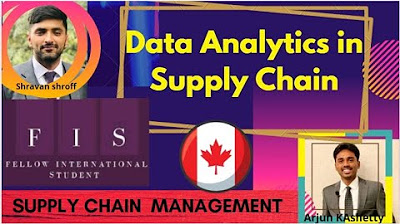How Can Supply Chains Embrace Sustainability?
Summary
TLDR在这段视频中,Accenture的两位分析师Chris Timmermans和Matthias Pullman-Larsen讨论了供应链在应对气候变化中的关键作用。他们指出,供应链是全球碳排放的主要来源之一,几乎占全球排放量的60%,并且是极端天气事件导致的供应链中断的主要原因。为了应对这些挑战,供应链必须变得更加可持续和有韧性。他们强调了数字化技术在实现供应链可持续性中的重要性,包括区块链和数字孪生技术,这些技术有助于优化供应链网络,减少排放,并与供应商合作减少排放。此外,他们还讨论了CEO们如何将可持续性作为优先事项,并强调了消费者、人才和投资者对可持续实践的日益关注。最后,他们建议供应链领导者采取行动,将碳视为商业成本,利用技术和智能进行合作,并保护劳动力,以实现供应链的可持续性。
Takeaways
- 🌱 **供应链在气候变化中的角色**:供应链是全球碳排放的主要来源之一,约占全球排放量的60%,其中七个广泛的供应链(食品、快速消费品、时尚、汽车、电子、货运、建筑)占近一半的排放量。
- 📉 **气候变化对供应链的冲击**:极端天气事件的增加导致供应链中断,近半数的CEO表示他们正在努力应对由此造成的供应链中断。
- 🔄 **供应链的可持续性**:创建一个有韧性、负责任的供应链对于应对排放、循环性、信任和可持续性至关重要。
- 🚀 **技术作为推动力**:75%的CEO已经开始加快供应链的数字化进程,以实现可持续性目标。
- 💡 **现代供应链的需求**:现代供应链需要同时优先考虑客户、环境和社会,以一种有韧性和盈利的方式运作,这需要算法和智能决策支持。
- 📊 **数据和数字化的重要性**:为了生成智能决策所需的数据,供应链必须数字化,这与技术紧密相关。
- 🔗 **区块链技术的潜力**:60%的CEO认为区块链技术在连接合作伙伴数据方面具有显著影响,是未来五年的关键技术。
- 🌐 **数字孪生技术**:44%的CEO认为数字孪生技术对于未来至关重要,因为它允许不断优化网络,减少运输时间、里程和燃料消耗,从而减少排放。
- 📈 **将碳视为商业成本**:公司可以在微观和宏观层面将碳成本纳入公司决策,甚至对内部差旅设定碳成本,并将此投资于可持续性。
- 🛠️ **劳动力的保护与发展**:劳动力需要新技能以在数字化驱动的、有韧性的环境中取得成功,但只有38%的供应链高管认为他们的人员准备好使用所需工具。
- 🌟 **可持续性作为商业优势**:可持续性不仅是正确的事情,也是良好的商业实践,因为消费者越来越关注企业的道德行为和价值观,而且对投资者而言,环境、社会和治理(ESG)得分低的公司可能会面临市场准入障碍。
Q & A
供应链在对抗气候变化中扮演什么角色?
-供应链在对抗气候变化中扮演着关键角色。它们是碳排放的最大来源之一,全球约60%的排放量来自供应链。此外,供应链也是气候变化导致的极端天气事件影响最大的受害者,这些事件经常导致供应链中断。
为什么供应链的可持续性变得如此重要?
-供应链的可持续性不仅关乎道德和环境责任,也是商业成功的关键。消费者越来越关注企业的伦理行为和价值观,优秀的可持续实践能吸引人才,避免市场准入限制,减少因环境社会治理(ESG)评分低导致的成本上升,以及避免因历史风险导致的投资股东降低公司估值。
技术如何帮助确保供应链的可持续性?
-技术,特别是数字化技术,是确保供应链可持续性的关键推动力。通过数字化供应链,公司能够优化决策过程,管理大量的数据和复杂的算法。区块链技术可以帮助公司追踪和理解其供应商的环境和社会治理(ESG)数据,而数字孪生技术可以模拟供应链网络的行为,优化运输路线,减少排放。
CEO们如何看待供应链的可持续性?
-根据调查,四分之三的全球CEO认为在应对COVID-19后果时,可持续性是一个迫切需要优先考虑的问题。他们认识到,如果不采取行动,可能会导致公司价值的大幅缩水。
供应链领导者应如何优先考虑可持续性?
-供应链领导者可以通过将碳成本纳入公司决策、利用技术和智能来与供应商合作减少排放、以及提高劳动力技能以适应数字化和弹性环境等方式来优先考虑可持续性。
为什么说供应链的数字化对于实现可持续性至关重要?
-供应链的数字化允许公司收集和分析大量的数据,这对于优化供应链网络、减少运输时间和里程、降低燃料消耗和排放至关重要。没有数字化,人工处理如此庞大的数据和复杂的算法是不可行的。
什么是数字孪生技术,它如何帮助供应链?
-数字孪生技术是一种利用数字化手段创建物理实体或系统的虚拟副本的技术。在供应链中,它可以模拟供应链网络的行为,帮助公司不断优化网络,减少运输时间、里程和燃料消耗,从而降低排放。
区块链技术在供应链可持续性中扮演什么角色?
-区块链技术在供应链可持续性中提供了数据的透明度和不可篡改性,有助于公司追踪和理解其供应商的ESG数据,这对于做出明智的决策和与供应商合作减少排放至关重要。
供应链中断对企业有哪些影响?
-供应链中断会对企业造成重大影响,包括生产延迟、成本增加和收入损失。极端天气事件导致的供应链中断被近一半的CEO认为是他们面临的最大风险之一。
消费者对企业可持续性的态度如何?
-消费者越来越关注企业的伦理行为和价值观。Accenture的研究表明,74%的消费者认为企业的道德实践和价值观是选择品牌的一个重要原因。
企业如何通过可持续性来吸引人才?
-企业通过展现其对可持续性承诺,可以吸引那些寻求有意义工作的人才。良好的可持续实践不仅能提升企业形象,还能帮助企业在激烈的人才市场中获得优势。
为什么说现在是国际公司在供应链中采取行动实现可持续性的关键时期?
-当前,由于气候变化导致的极端天气事件日益频繁,供应链中断的风险增加,加上消费者、投资者和监管机构对企业可持续性的期望不断提高,现在是国际公司采取行动,通过实现供应链的可持续性来保护其长期利益的关键时期。
Outlines

This section is available to paid users only. Please upgrade to access this part.
Upgrade NowMindmap

This section is available to paid users only. Please upgrade to access this part.
Upgrade NowKeywords

This section is available to paid users only. Please upgrade to access this part.
Upgrade NowHighlights

This section is available to paid users only. Please upgrade to access this part.
Upgrade NowTranscripts

This section is available to paid users only. Please upgrade to access this part.
Upgrade NowBrowse More Related Video

12 Steps to a Resilient Enterprise

The Critical Role of Supply Chains in Business and Society

Data Analytics in Supply Chain Management Canada🍁 Tools to use🎒 Pay Range🚛Roles & Titles & Companies

Omera Khan: Building robust & resilient supply chains in today's dynamic business environment

Supply chain trends- What executive leaders expect in 2024

Why Companies Are Considering Supply Chain Disruption Insurance
5.0 / 5 (0 votes)
